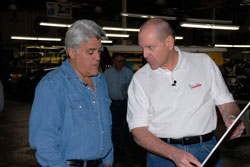Toronto, Canada-based Bio-Extraction Inc. is joining with BioNex Energy Corp to develop and test, and then prove the commercial viability of using a cold crushing technology to more efficiently extract oils from seeds for use in a BEC biodiesel refinery in the works in western Canada.
Check out this story from Renewable Energy Access.com:
BEC is a developmental stage company that intends to use cold crushing technology in its plant as a first-stage process for removal of oil from canola and other high oil-content crops; BioExx would provide the second-stage process.
The first stage of oil removal will remove approximately 80% of the oil from the biomass while maintaining a consistently low temperature. In the second and final stage of oil removal, the process will remove up to 100% of the remaining oil while at the same time maintaining the protein value originally contained in the biomass.
The story says the technology could allow a greater amount of oil to be extracted from feedstocks while preserving the food value content of the original material. That could make biodiesel production more economical and end some of the debate of fuel taking up food sources.


 After testing B20 biodiesel for nearly the last six months, the California Department of Transportation could be switching some of its vehicles to the cleaner fuel.
After testing B20 biodiesel for nearly the last six months, the California Department of Transportation could be switching some of its vehicles to the cleaner fuel. What’s ahead on the road for ethanol? That’s what a new report will attempt to predict.
What’s ahead on the road for ethanol? That’s what a new report will attempt to predict. Oklahoma Governor Brad Henry is hosting a conference on biofuels October 16-17th in Oklahoma City. More information is on the way but this web site
Oklahoma Governor Brad Henry is hosting a conference on biofuels October 16-17th in Oklahoma City. More information is on the way but this web site  It is my pleasure to invite you to attend to the Oklahoma Governor’s Conference on Biofuels.
It is my pleasure to invite you to attend to the Oklahoma Governor’s Conference on Biofuels. A showdown over ethanol is brewing at the Organization of American States’ General Assembly meeting this week in Panama. According to
A showdown over ethanol is brewing at the Organization of American States’ General Assembly meeting this week in Panama. According to  Not surprisingly, on the other side of the issue is the U.S.-hating Hugo Chavez, leader of oil-rich Venezuela. He’s joined by Cuba’s Fidel Castro, and not too surprisingly, Mexico… which has great oil reserves of its own:
Not surprisingly, on the other side of the issue is the U.S.-hating Hugo Chavez, leader of oil-rich Venezuela. He’s joined by Cuba’s Fidel Castro, and not too surprisingly, Mexico… which has great oil reserves of its own: On empty in East Lansing? Runnin’ low near the Alamo? The Ethanol Promotion and Information Council or EPIC has an E85 station finder on its web site
On empty in East Lansing? Runnin’ low near the Alamo? The Ethanol Promotion and Information Council or EPIC has an E85 station finder on its web site  Nearly 50 years in the business of engine performance should be enough experience to earn one the title of “Auto Performance Expert.” Gale Banks with
Nearly 50 years in the business of engine performance should be enough experience to earn one the title of “Auto Performance Expert.” Gale Banks with 
 Clean energy innovator Clean Diesel Technologies, Inc has struck a deal with Stuttgart, Germany-based Bosch GmbH, a leading global supplier in the areas of automotive and industrial technology, customer goods and building technology, to allow Bosch access to key patents developed by Clean Diesel for selective catalytic reduction (SCR).
Clean energy innovator Clean Diesel Technologies, Inc has struck a deal with Stuttgart, Germany-based Bosch GmbH, a leading global supplier in the areas of automotive and industrial technology, customer goods and building technology, to allow Bosch access to key patents developed by Clean Diesel for selective catalytic reduction (SCR). Dr. Walter Copan, Executive Vice President and Chief Technology Officer of Clean Diesel (you might remember
Dr. Walter Copan, Executive Vice President and Chief Technology Officer of Clean Diesel (you might remember